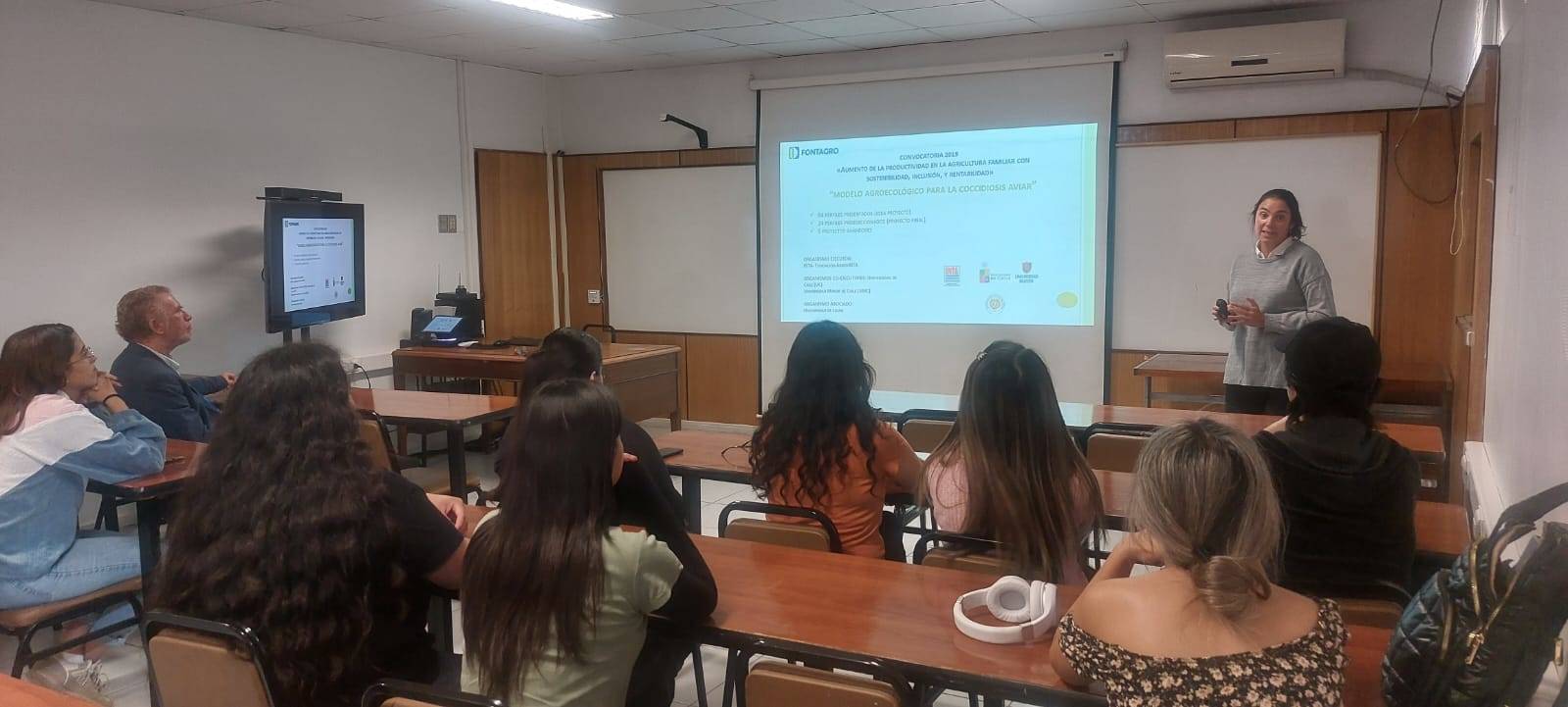The team met with its components from Argentina and Chile to agree on general criteria

Once the “Agroecological Model for Aviar Coccidiosis and Innovation Network” project has fulfilled- in a first stage- the objective of characterizing the family farms of Argentina and Chile to understand the predisposing conditions that exist in the region for development of the disease and- in a second moment- determine the prevalence of the parasite that causes it by identifying the present species, the design of the model to control began to be discussed.
In April 2023, for this purpose a meeting of the project funded by Fontagro was held, within INTA from Argentina, and the University of Chile and the Universidad Mayor Chile, with the support of the University of Luján (Argentina); Prodesal, the University of the Americas and the Santo Tomás University (Chile).
It was agreed that the agroecological model to design should contemplate some basic elements:
a) Proper management of the facilities: anticipating an adequate design of the chicken yards, providing a clean, dry and well ventilated environment to reduce the proliferation of the agents causing coccidiosis.
b) Improve animal welfare: the need to improve temperature control, moisture, and ensure pecking elements and elevated elements for birds was highlighted.
c) Diet management: Provide a balanced and adequate diet to the birds to strengthen their immune system and improve their resistance to the disease. Feed such as black acacio, origanum or garlic which have proven anti -cycidial activity, will be trialed.
d) Good hygiene practices: recommend the implementation of rigorous measures, such as regular cleaning of poultry facilities and equipment, adequate disinfection of feeders and drinking fountains, and control of rodents and insects, to prevent the propagation of coccidios.
These criteria will be transmitted through training to family poultry farmers on the best management and control practices of coccidiosis, promoting the adoption of preventive measures and the use of agroecological practices, minimizing the use of chemical products and promoting the health of birds and ecosystem in general.




